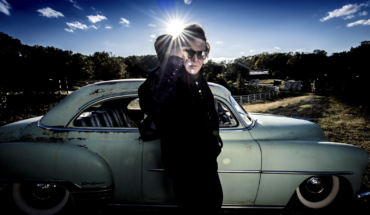If the past three years haven’t been sufficient to drive home the point, then perhaps it needs restating. We live in compelling political times, the reality starker than before, the populace engrossed by the ongoing national conversation.
It’s been an enraging, engaging time for all. The gnashing of teeth has been all too audible and yet, surprisingly, and in spite of the cack-handedness of our political establishment, we have been roused to a heightened state of political awareness, an awareness of which, hitherto, we perhaps thought ourselves incapable.
But the protest evoked (by the B word) only snowballed, then gutterballed onto social media where it ended, not with a bang but a whimper, to be followed by cat calls, recriminations and emotional burn-out.
So how gullible have we been, lured into the virtual open only to squeal like stuck cyborgs? Were we caught in a digital maze designed by our overlords who tickled us into action and simultaneously straight-jacketed us on said blogosphere, our ire diminished and finally extinguished? Did we become drones who thrashed around futilely in cyberspace? Were we overwhelmed, our reserves of energy such as they were (and better saved for real protest) finally exhausted? And if so, how did this come to pass?
Perhaps the answer is too simple. Perhaps we chose to reject the thing on which we had always relied: art’s truth; or for our purposes, the protest song. Through such a song, our plain sincere feelings had once been sung back to us by the likes of Guthrie, Dylan, Scott-Heron (pictured) and Mayfield.
But in picking up the smart phone, we’re now complicit in encouraging today’s songwriters to drop their pens, harmonicas and guitars as we emote soundlessly into the virtual void, choosing instead to listen to each other in a hermetically sealed environment, locked up and foiled. Made fools of.
But at least the argument, if not heard by the elite that needed to hear it, was at last had, and in having it we asserted our dormant agileness and proved, if nothing else, that we still care about the country in which we live. The trick now is to demand that our bands and troubadours (the signed and unsigned) give voice to the zeitgeist and, in so doing, help feed the national dialectic.
But will they? Can they? Will the artists among us dare to upset their paymasters and ditch the new puritanism so that they’ll once again walk in the shoes of Dylan et al? Time will tell, but it’s high time that the discarded pen was retrieved.
When Gil Scott-Heron wrote ‘The theme song will not be written by Jim Webb, Francis Scott Key/Nor sung by Glen Campbell, Tom Jones, Johnny Cash, Engelbert Humperdinck or the Rare Earth‘, he was sadly correct. Today it’s sung by Ed Sheeran.
One of many limelight hoggers, Sheeran as a corporate avatar has done very well for himself. He’s risen to the top. Or, if you’d rather, floated. To his words people listen in their tens of millions, and it is this supine multitude that has turned its back on the protest song (while protesting too much that it protesteth not enough). We used to trust in our songwriters but, let down by the likes of Ed, prefer now to trust in the cacophony of the apps. It’s become a national sport.
As punters, we can only invest in songwriters if they continue to write, but today – with the likes of Taylor Swift and Stormzy – we’re offered performers who perhaps care only for their standing in the corporate world and whose work (if we truly care about ideas) should be boycotted.
The lyric ‘There’s a battle outside and it is raging/It’ll soon shake your windows and rattle your walls‘ reflected the times from which it sprang. But does ‘We can go drivin’ in, on my scooter/Uh, you know, just riding in London/Alright‘ reflect the here and now and the state we’re in? Unfortunately, yes; it reflects our tolerance for mediocrity.
Having entered these new ‘Roaring Twenties’ are we to drown in dross? The public’s sense of social injustice grows daily, but the national mood requires a lightning rod and that must be a new Dylan, not a new app.
Right now there’s only the sound of silence that marks our acceptance of the order of things. So how great is our appetite for dissent, really? Is what actually keeps us up at night the worry of shrinking home equity and little else?
There is much for our songwriters to critique and for us to resist, and though for the moment the fight seems to have gone out of people, the fight must go on. We must stop liking our burgers tall, our coffee sweet and our songs processed because in giving ourselves spiritual indigestion we seem to have stopped caring. It’s enough to make the late great Gil Scott-Heron reach for the bottle…
Jason Holmes
@JasonAHolmes





